Alco | Interview | Extremely Rare British Gem of Prog Rock
Alco was originally put together as a project at Itchen College, Southampton, Hampshire, England where they recorded an art rock concept album with neo-classical elements.
The release includes some astonishing complex dreamy tracks with wistful vocals and an eloquent mesh of keyboards, synths, guitar and orchestra. The project consisted of Tim Caesar on keyboards and lead vocals, Paul Fidlin on bass/lead guitars and vocals, Ben Brook on lead/bass guitars and vocals and Julian Caesar on drums, synthesizer and vocals.
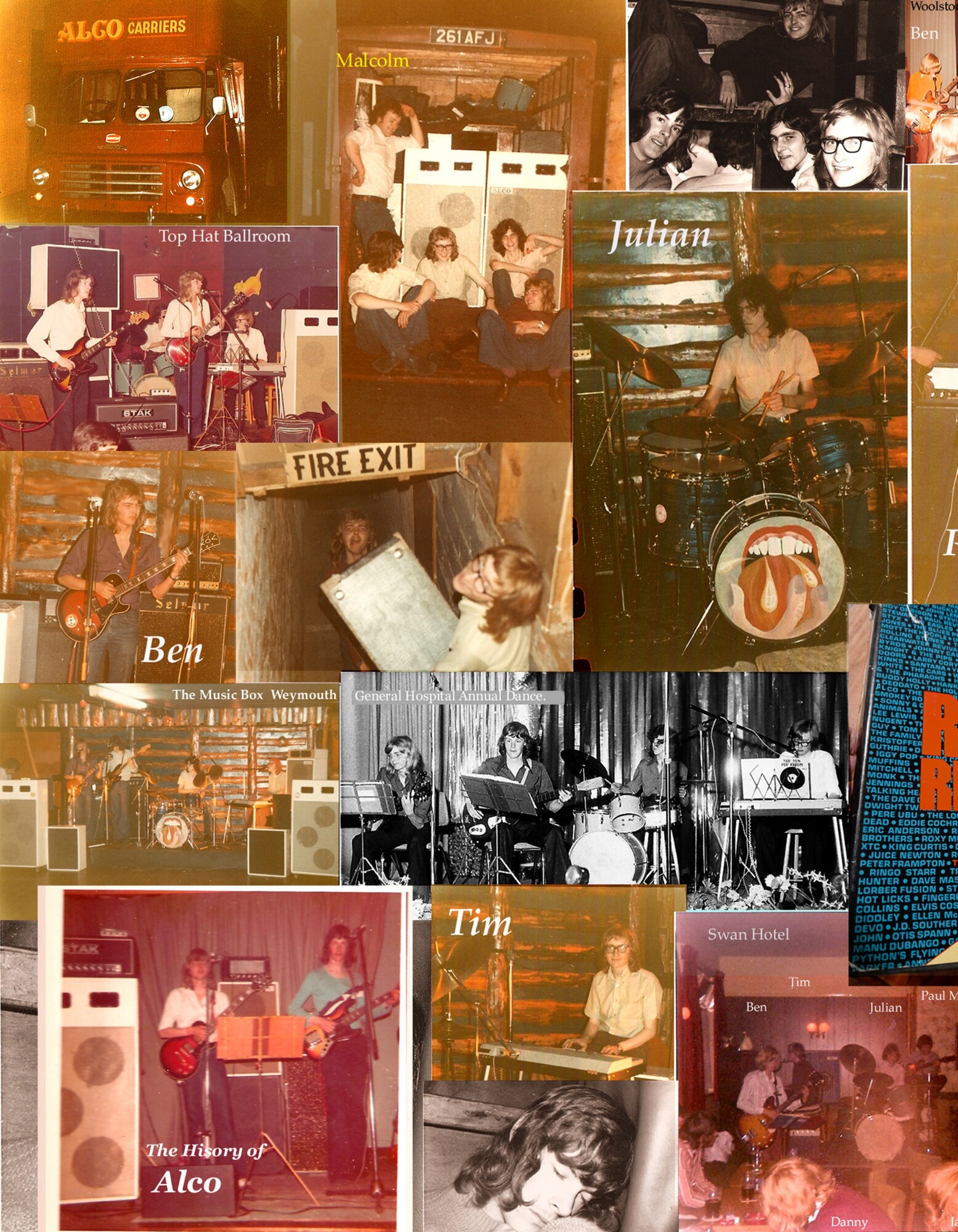
“That performance of ‘Threads of Life’ was such a success, that it was agreed it would be a crime if this was to be the last time anyone would ever hear it”
Where and when did you grow up? Was music a big part of your family life? Did the local music scene influence you or inspire you to play music?
Ben Brooke: We all grew up in Southampton, England. Tim and Julian were encouraged in music as was both Paul Fidlin and Paul Morgan. Tim and Julian Caesar rode two buses across town to attend Woolston School known for its music and arts program. Both Paul Fidin’s and Paul Morgan’s father’s were accomplished guitarists. I basically taught myself guitar. We were too young for the music scene, Tim being the oldest at 14 when we started the band. Our influences? We listened to pirate radio stations, especially John Peel and the limited pop music on the BBC. We were far too young to go to concerts and didn’t have the money anyway.
Were you members of any bands in the 60s?
Ben Brooke: No.
Can you elaborate the formation of Alco? Who were members of the band and where were you located?
Ben Brooke: The core of what became known firstly as the band “oOzE,” and then ‘Alco’ was: Tim Caesar, piano and lead vocals, Julian Caesar, drums and vocals, and I on guitar and vocals. We all attended Woolston School and first got together in the geography room at lunchtimes and later at Tim and Julian’s house. Initially Paul Morgan was on bass. Paul Fidlin took his place after Tim and I left Woolston Secondary School at 16 in 1972. We practiced in a small downstairs room of Caesar’s house. Crammed in the room we had an upright piano, electronic keyboard, full set of drums, a large 15″ speaker and amp, and my tiny 10 watt Heathkit amp that I built from a kit. There was little room to move, but we had our practice space and mum Caesar would often offer biscuits, something of a rarity at my home. Tim’s and Julian’s mum, Jan Caesar, was a ward sister at Southampton General Hospital. Jan got us engagements for the hospital dances where we played a wide variety of popular music. We also started working on our own songs. At a talent contest we got £10 prize money for playing our songs. I was an extra in the Bond film Diamonds are Forever. I asked the agency Avenue Artists, who had recruited the extras, to represent oOzE. Not too many gigs were forthcoming, but we still had our hospital gigs and had also persuaded a pub near our school, the Swan Hotel, to let us play one night a week. By this time Tim and I were 15 years old and the others a year or more younger. We were a little young to play in a pub, but our school pals would come and support us. We would use a taxi to transport our gear which cost half of the 5 pounds that we earned. Any money that the band earned was invested back into the band for equipment and instruments. Tim and I left Woolston School in 1972 aged 16 and transferred to Itchen College, a two year college. Julian and Paul Morgan were still at Woolston School. Paul Morgan decided to turn his musical direction towards jazz and left the band. With Paul Morgan gone we needed a bass player. Tim met Paul Fidlin at Itchen College through a friend of the Caesar family. Thus the band members became: Tim Caesar on keyboards and lead vocals, Julian Caesar on drums and vocals, I on guitar and vocals and Paul Fidlin on bass and vocals. This was the lineup for the album ‘Threads of Life’ by Alco. The first time we played ‘Threads of Life’ live was at a music and art evening put on by Itchen College. The band set up in the students common room and I remember being a little disappointed with the size of our audience. However we received a good positive response and Jonathan Palmer heard us play and was inspired, and hence became the project ‘Threads Of Life’.
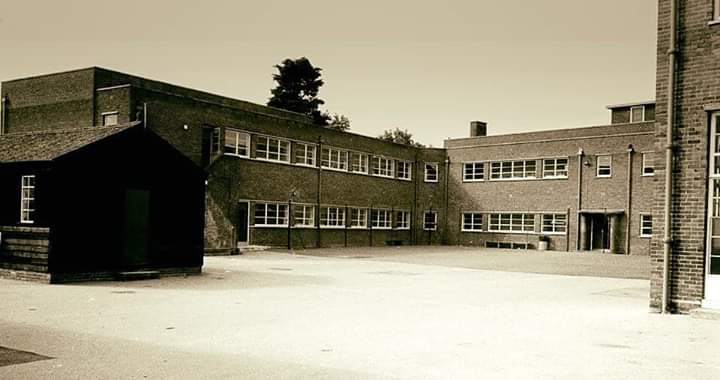
What are some clubs you played? Who did you share stages with?
Ben Brooke: One of our favorite gig’s was the Music Box in Weymouth. We also played the Playboy Club in Southampton which was strange as there were too many distractions for the audience and the band, haha. Alco were the opening act for Long John Baldry on one occasion.
You released a sole album in 1972, ‘Threads Of Life’. Are there any other recordings released? Maybe a single or something?
Ben Brooke: We recorded ‘Linda’ in a small studio in Eastleigh in the early part of 1974. This the third track on side two. There are many references that ‘Threads Of Life’ was recorded in 1972, but for the “record” it was recorded in July 1974.
What’s the story behind your debut album? Where did you record it? What kind of equipment did you use and who was the producer? How many hours did you spend in the studio?
Tim Caesar: Jonathan Palmer was Director of Music at Itchen College, and my “A” level music teacher. I must have let it slip that I was in a band with two other students there, and my brother Julian, who still had a year or so to go at Woolston School before he would come to the college. Anyhow, he was the one who suggested collaborating on a joint project with Alco and the Itchen college orchestra, to be played in a concert at the college, and Jonathan and I spent several sessions at the piano in the college music room working out how we were going to achieve this, Jonathan taking notes as I demonstrated our ideas, which he would then take away to compose his marvellous score which comprised not only his orchestrations, but extra material to complete the project.
We already had a couple of original songs that we could use as a starting point, ‘When I Was a Child,’ and ‘Rain Upon My Mind,’ a song which had been specially written for us by Michael Caesar, a cousin of mine and Julian. Once we had written ‘I’ve Seen The Light’, we had enough material to incorporate into our trilogy, but we needed a title. The line “I see the threads of life go by” which Michael had written in ‘Rain Upon My Mind’ had stood out to us so starkly, that it seemed a no – brainer to borrow the phrase which we could use as a loose umbrella concept, ‘Threads Of Life’.
After the score was completed, there were rehearsals and finally, the day of the concert arrived, Friday, May 17th 1974. It was the centre-piece of a varied programme of music performed by students and staff, during which Alco also played some of the songs which would later appear on side 2 of the subsequent album. That performance of ‘Threads of Life’ was such a success, that it was agreed it would be a crime if this was to be the last time anyone would ever hear it, and so the idea of making a long-playing record of our little “masterpiece” was mooted, and Jonathan set about organising the plan.
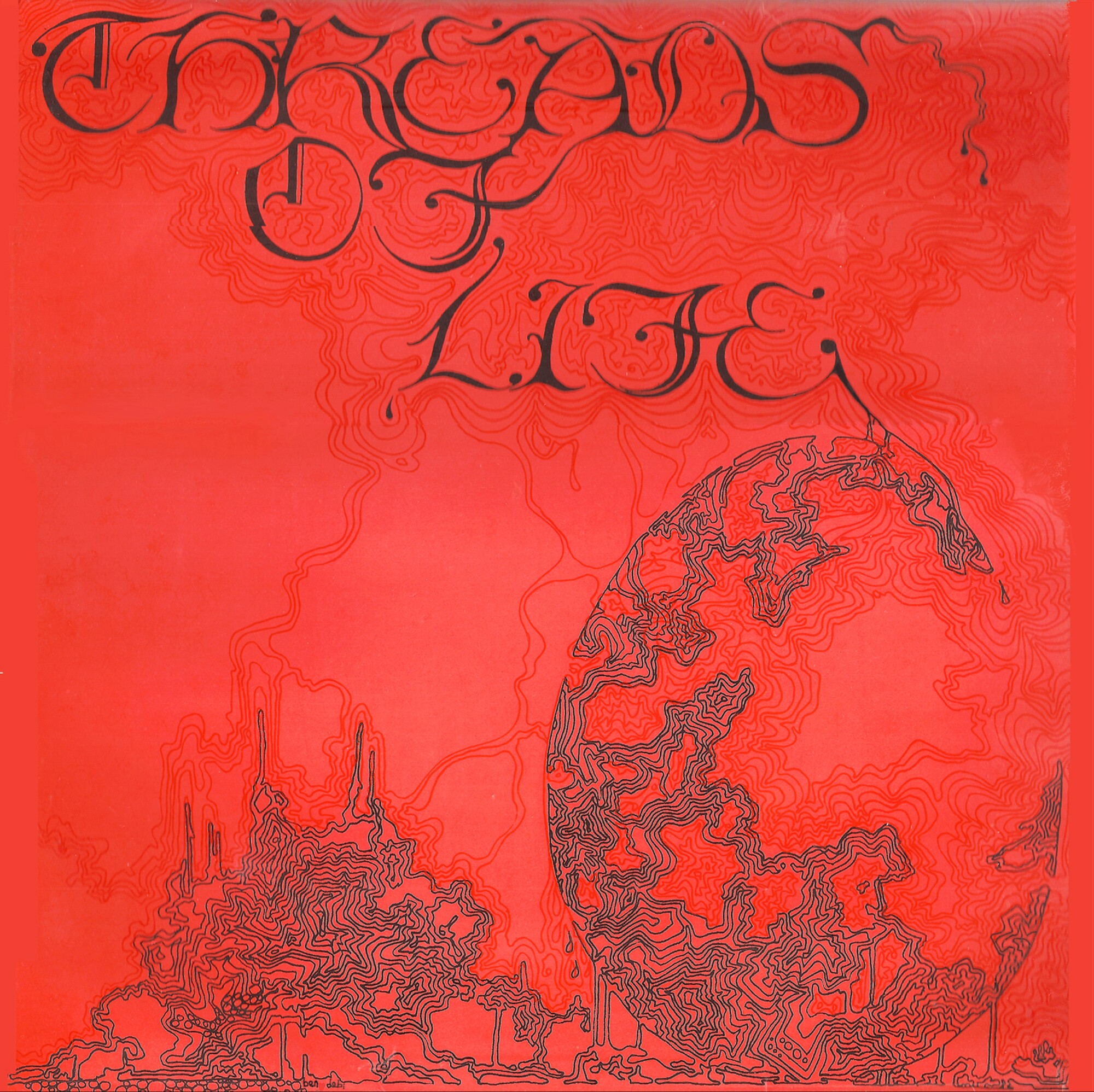
Paul Fidlin: As students at Itchen College we were all short of money, and were always looking for less expensive gear. I had wanted a Fender Jazz Bass but settled for a decent copy from a Japanese manufacturer. The band was in need of better, and more, speaker cabinets for the gigs we were playing. I had previously built simple rectangular enclosures for bass, organ and guitar (1x15in, 1x15in and 2x12in) respectively. We needed PA speakers for vocals (we all sang) and there were very few options within our price range. I was a collector of catalogs from music equipment manufacturers (Fender, Marshall and Vox being favorites) and had also picked up a catalog from WEM – Watkins Electrical Manufacturing. In the early ‘70s they were one of just a handful of companies that made cabinets dedicated to vocal reinforcement. Most of the offerings from other companies were column speakers using 4 x 12in guitar speakers or 8 x 6in home audio speakers – you can imagine that they were lacking the mid/high-range and the horizontal coverage was very narrow at higher frequencies. WEM was one of the first companies to make 2-way systems using woofers, horn tweeters and crossover networks. All the bigger touring bands had used WEM in their early days – bands such as The Who, Pink Floyd and The Kinks. This seemed to be the way to go but unfortunately not in our price range. I did some research on cross over design and looked to see what our local “big box electronics” store (Comet) had to offer in the way of loudspeaker components. It turned out that they carried the Goodmans Loudspeakers line of components and had some suitable choices. The woofers selected were the Audiom 12P (12-inch diameter, 50W) and the horn tweeters were the Midax 650 (9in x 4in horn, 25W). I put a rough cost estimate together for the band, and we decided to go ahead with two 2x12in low cabinets with separate small horn boxes each containing 2 of the Midax 650s and the crossover network. The horn boxes simply connected to the low cabinets with short ¼-in speaker cables. We decided to go ahead with the speakers and purchased a STAK 150W PA amplifier head to drive these new PA cabinets. I spent a few evenings constructing the enclosures from 8ft x 4ft sheets of particle board & 1in x 2in trusses that supported each of the edges and provided a central brace for cabinet stiffness. Not having too many other easy options I painted the enclosures gloss white – probably not the best choice – but easy to touch up if we needed. The electronic components needed to implement a 2nd order Butterworth crossover at 800 Hz were ordered from a mail order company called Maplin in Essex. They serviced the home hi-fi DIY market and had a good selection of higher voltage (100V) audio capacitors & air-cored inductors. The crossover was hand wired to a piece of hardboard which was screwed securely inside the high-frequency cabinets. It is this initial PA that you can see in the concert photo that we used for voice lift during the ‘Threads of Life’ concert and on future gigs.
Please share your recollections of the sessions. What were the influences and inspirations for the songs recorded?
Julian Caesar: Guildford University was running the first ever course in sound engineering, the Tonmeister Course. They brought a mobile studio down to Southampton. Nobody had a mobile studio in those days except The Rolling Stones! The recording was done in the college hall. The drums were on the stage above the orchestra, which was on the floor. The drums were found to be too loud and leaking into the other mics. So the curtains were closed and I had to play behind them. I was given a closed circuit TV monitor so I could see Jonathan Palmer conducting. It took some getting used to. This is why some of the drum entries are a bit late. I think we only had time for two takes. There were things going on that I wasn’t aware of from that position, for example, I didn’t know there was a sax in the orchestra until I heard the playback in the studio. The vocals were done later at the studio session at Guildford University where we recorded the tracks on side two. It was only there that I could hear what it all sounded like. The EMS Synthi AKS was a suitcase version of the VCS 3 voltage controlled synthesiser, used by the likes of Brian Eno of Roxy Music and Pink Floyd to name but two. The EMS innovation was patch pins, rather than leads, as in the Moog. I discovered the patch, used for vibrato on the keyboard, would sound like bubbles or a helicopter if you turned it up full. This I used as the basis for the intro to ‘Waiting To Be Born,’ by varying the intensity from heavy to light and back again. The wind was made with white noise and a variable output filter. The title of the piece, and later the album, ‘Threads of Life’ comes from the third line of ‘Rain Upon My Mind’. Written by our cousin Michael Caesar.
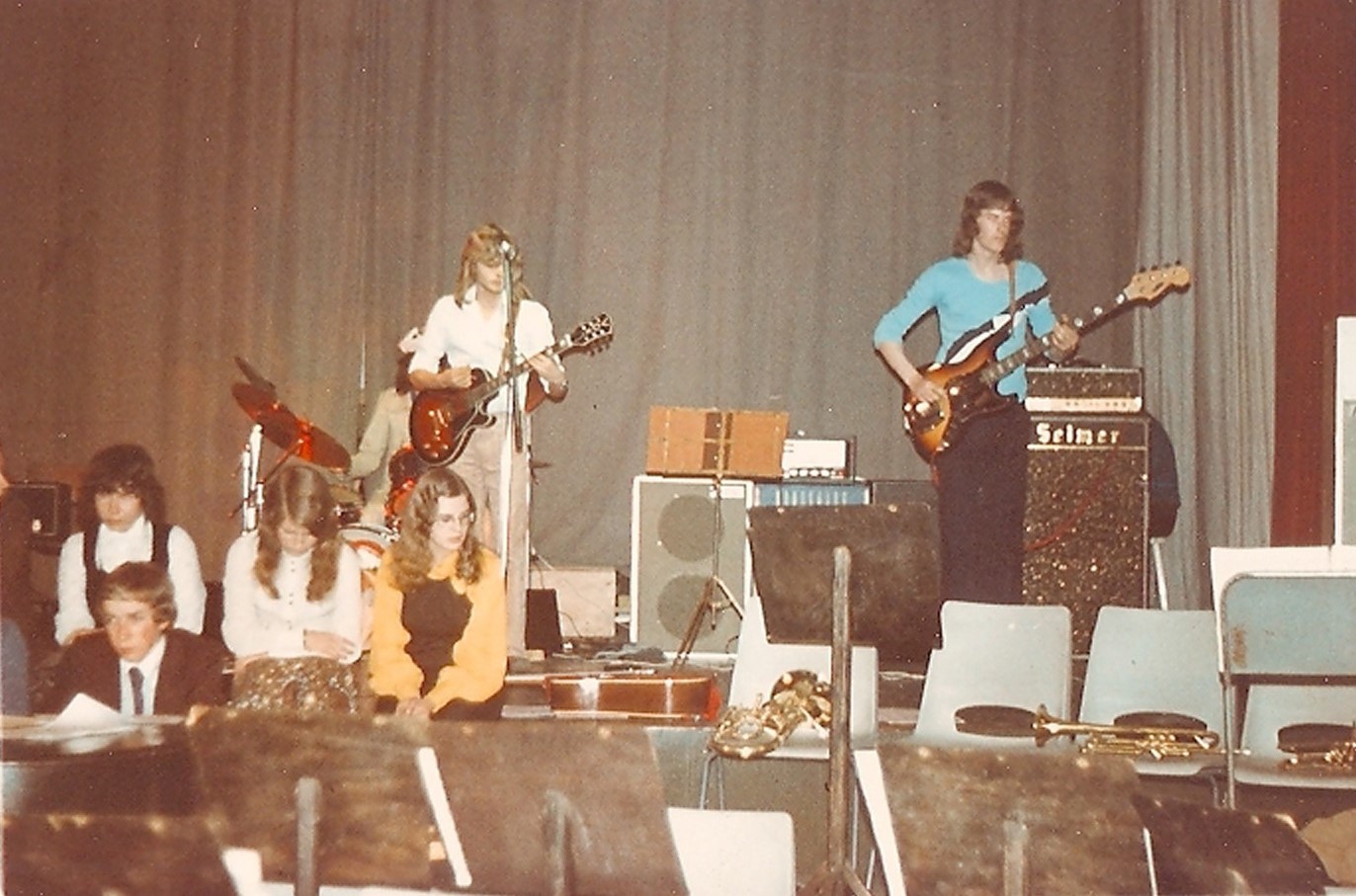
Would you share your insight on the albums’ tracks?
Ben Brooke: The credits reveal the incredible collaboration of the many involved in side one, the trilogy. A special mention must be made of the amazing orchestral score by Jonathan Palmer.
It was recorded with University of Surrey Music Dept Mobile Studio July 1974 at Itchen College Auditorium and at University of Surrey Guildford Studio. (‘Linda’ recorded at Eastleigh 1974). Tonmeister was Dick Hobbs, engineer Steve Smith.
Side 1.Trilogy. (I)
‘When I Was A Child’ (Tim Caesar, Paul Fidlin, Ben Brooke)
‘Rain Upon My Mind’ (Michael Caesar)
‘In My Dreams’ (Tim Caesar, Paul Fidlin, Ben Brooke)
Tim Caesar (keyboards, vocals. Wem Teischord organ. Grand piano)
Paul Fidlin (bass / lead guitars, vocals. Fender jazz bass. Höfner club guitar)
Ben Brooke (lead / bass guitars, vocals. Gibson SG Junior. Vox Les Paul)
Julian Caesar (Drums, synthesiser, vocals. Premier Olympic, EMS Synthi AKS)
Orchestra; Conductor, Orchestration and additional material: Johnathan Palmer.
1st Violins: Margaret Ferrett (leader), Norman Savage, Graham Miller
2nd Violins: Carol Cobley, Elizabeth Corbin, Christine Williams, Deborah Hall, Richard Roberts
Violas: Hazel Bond Andrew Parnell Martin Kennard
Cellos: Andrea Davies, Ruth Brinton, Alison Holland, Rachel Kenyon,
Bass: Jenny Robinson
Timpani: Carol Brent
Percussion: Debi Coombs, Stephen Harbach, Ray Davison
Flutes: Richard Hughes, Elizabeth Anthony
Staff: Mark Mumford
Oboe: Hilary Brinton
Clarinets: Julia Philbrick, Veronica Cooper
Trumpets: Michael Elliott, Cohn Richardson, Margaret Cardy
Horns: Denise Gale, Norman Fraser
Bassoons: Suzanne Chappell, Alison Parrott
Saxophone: Dereck Cornhill
Synthesiser: Peter Gamby, Julian Caesar
Sleeve design: Debora Coombs
The tracks on side two reflect each member’s song writing and also continue the ‘Threads Of Life’ theme.
Side 2
‘Waiting To Be Born’ (Ben Brooke/Bhari Jack)
This was written whilst Ben and Bhari were still at Woolston Secondary School.
‘Look At The Clouds’ (Paul Fidlin)
‘Linda’ (Tim Caesar/Julian Caesar/Ben Brooke)
This was the very first song that Alco recorded. Unlike today an A and B side of a single recorded in an evening session.
‘Hello Love’ (Tim Caesar)
Who did the album cover artwork?
Ben Brooke: The album cover was an original design by Debora Coombs who was at Itchen College at the same time taking A-level art, drama and art history. Itchen was a fantastic place for teenagers to learn about all the arts, not just music. Debora remembers laying all the text by hand, one letter at a time, using Letraset, a fancy type of stencil that was fashionable at the time. The album was called ‘Threads of Life’. Debora’s wiggly lines were like threads coming out of an egg to symbolize life being born. There’s a song called ‘Waiting to be Born’. All this influenced the design of the cover. Debora went on to art school, became a stained glass artist, and has made huge stained glass windows for places like 5th Avenue in Manhattan, Portland Oregon and Nashville Tennessee. She lives and works in Vermont USA.
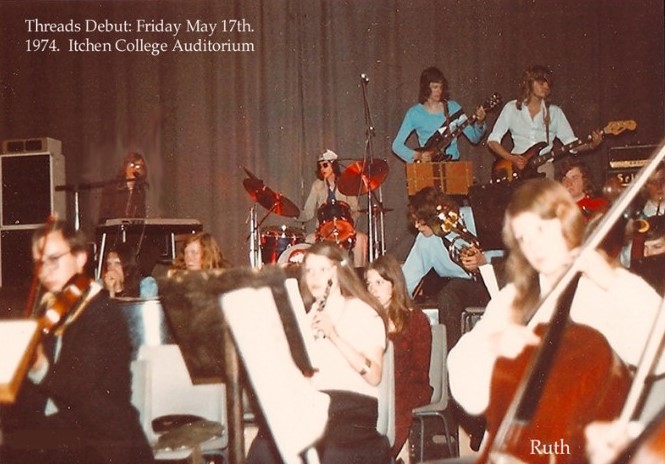
The album was self-released. How many copies did you originally press? Where did you sell them? At gigs? Local shops?
Ben Brooke: Only 260 pressings were ever made of ‘Threads Of Life’ which were sold to friends and family and at Alco gigs. The record had since become a bit of a collectors item.
Were you inspired by psychoactive substances like LSD at the time of writing the album?
Ben Brooke: No. Some of the lyrics might suggest otherwise.
From ‘In My Dreams’:
There was a rainbow
Way up above
I’m up (t)here now
Looking down
And all I see
Is you and me
And this is how it
Should always be
Could ever be
In all of my dreams today
What would be the craziest gig you recall?
Ben Brooke: On the way home one night at about 2am we stopped at Stonehenge. There were no fences back then… We ran around the stones making a bunch of noise. All of a sudden WE ALL felt a really weird vibe, ran back to the van and took off. Woooo, Weird! All our gig’s were memorable one way or another.
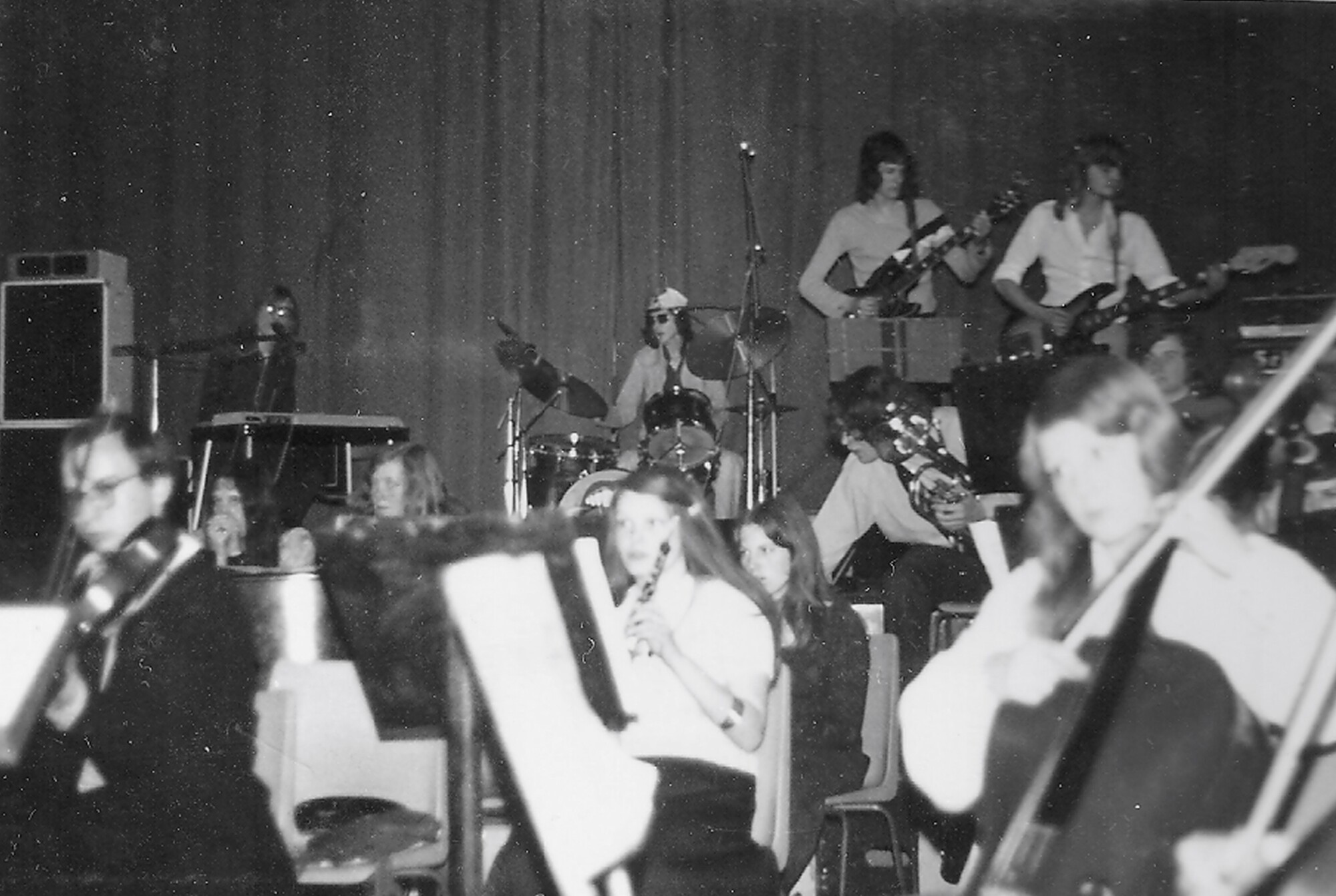
What happened after the band stopped? Were you still in touch with other members? Is any member still involved with the music?
Ben Brooke: Paul Fidlin went to University, and Rob Evans joined to play bass. Martin “Skip” Gritt was added on lead guitar. We then changed our name to “Burgundy Rose.” The band stayed together until January, 1978. We had been together over seven years and were, and still are great friends. Tim went to Leeds College Of Music, I went travelling, Paul Fidlin a career in Sound Reinforcement eventually retiring from the Bose Corporation. Rob, Julian and Tim became professional musicians, Paul Morgan is a sought after session musician on double bass. I now live in Washington State, Paul Fidlin in Massachusetts and Debora Coombs in Vermont USA. Tim lives in Leeds, Julian in Southampton and Rob and Skip in the south of England. All are still playing music.
Are you excited about the Seelie Court vinyl reissue? How involved were you with the reissue project?
Ben Brooke: Of course we’re excited! Who would have thought that our album would take on a life of its own’. I guess the “threads” are still growing! The remastering was done really well and consequently the quality of the sound is superb. What a lovely 67th birthday present.
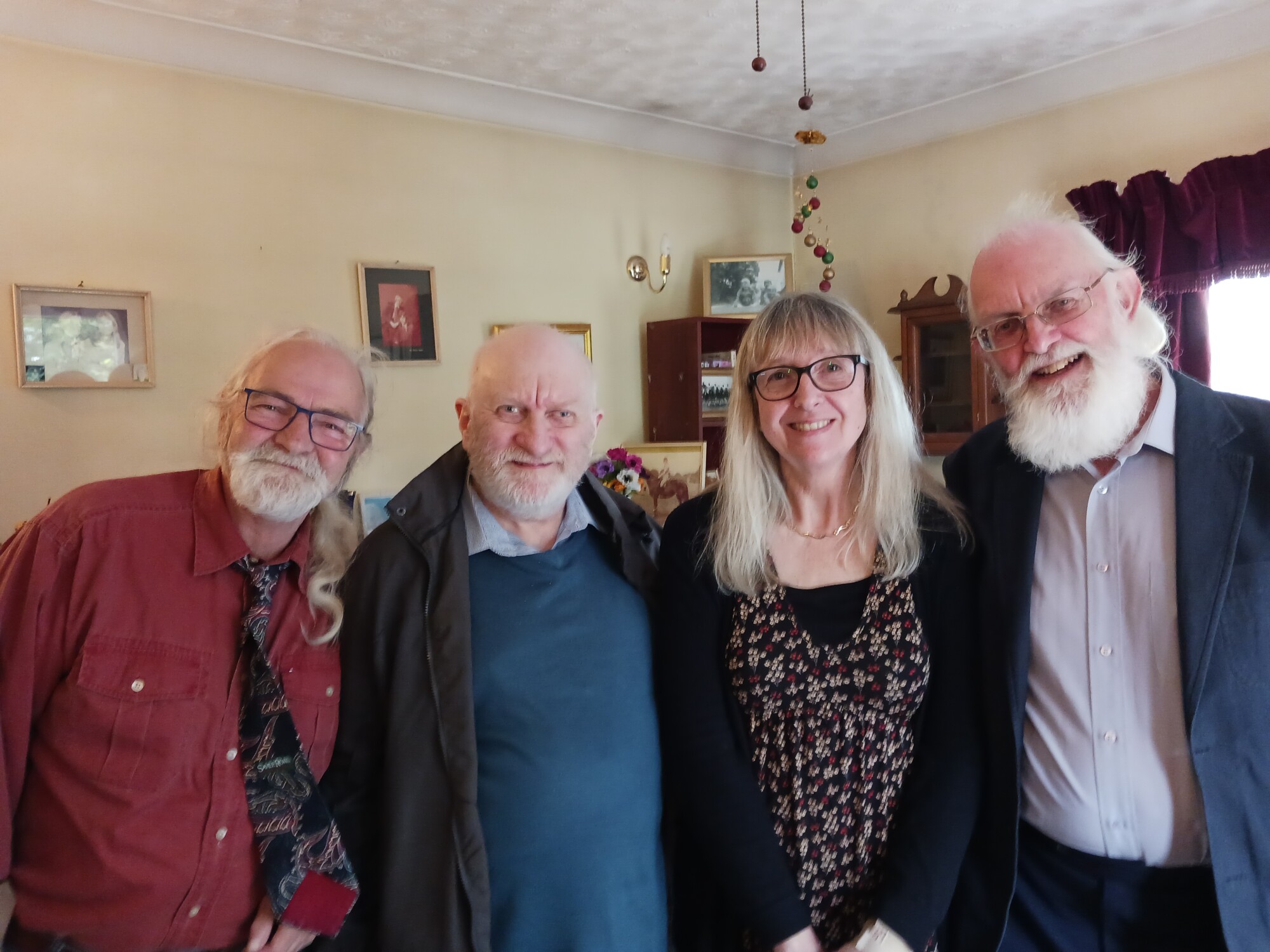
Thank you for taking your time. Last word is yours.
It’s amazing after all these years our music is still being heard. I have uploaded the album to YouTube under the title ‘Threads Of Life’ by Alco. On behalf of the band and the many who had a part in ‘Threads of Life’ thank you for your interest. I hope you have enjoyed reading about our history and music.
Klemen Breznikar

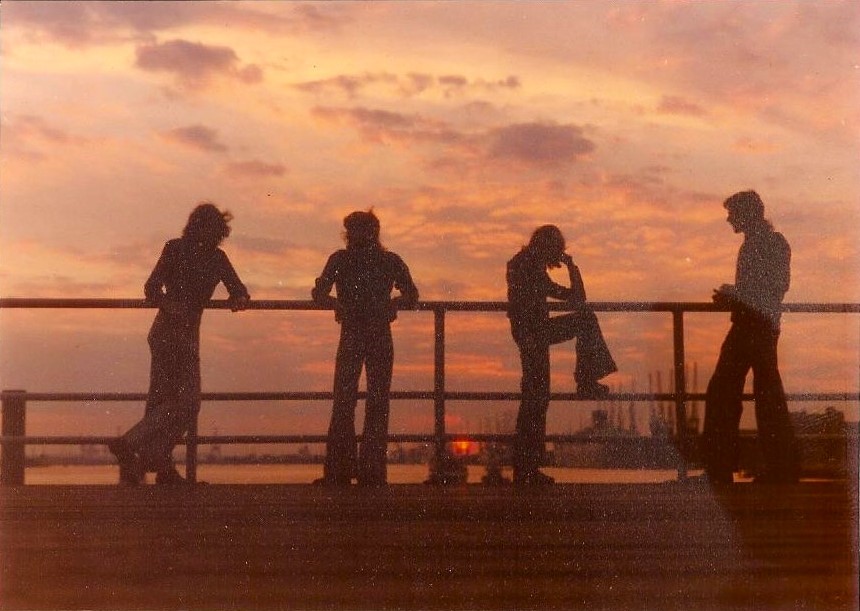


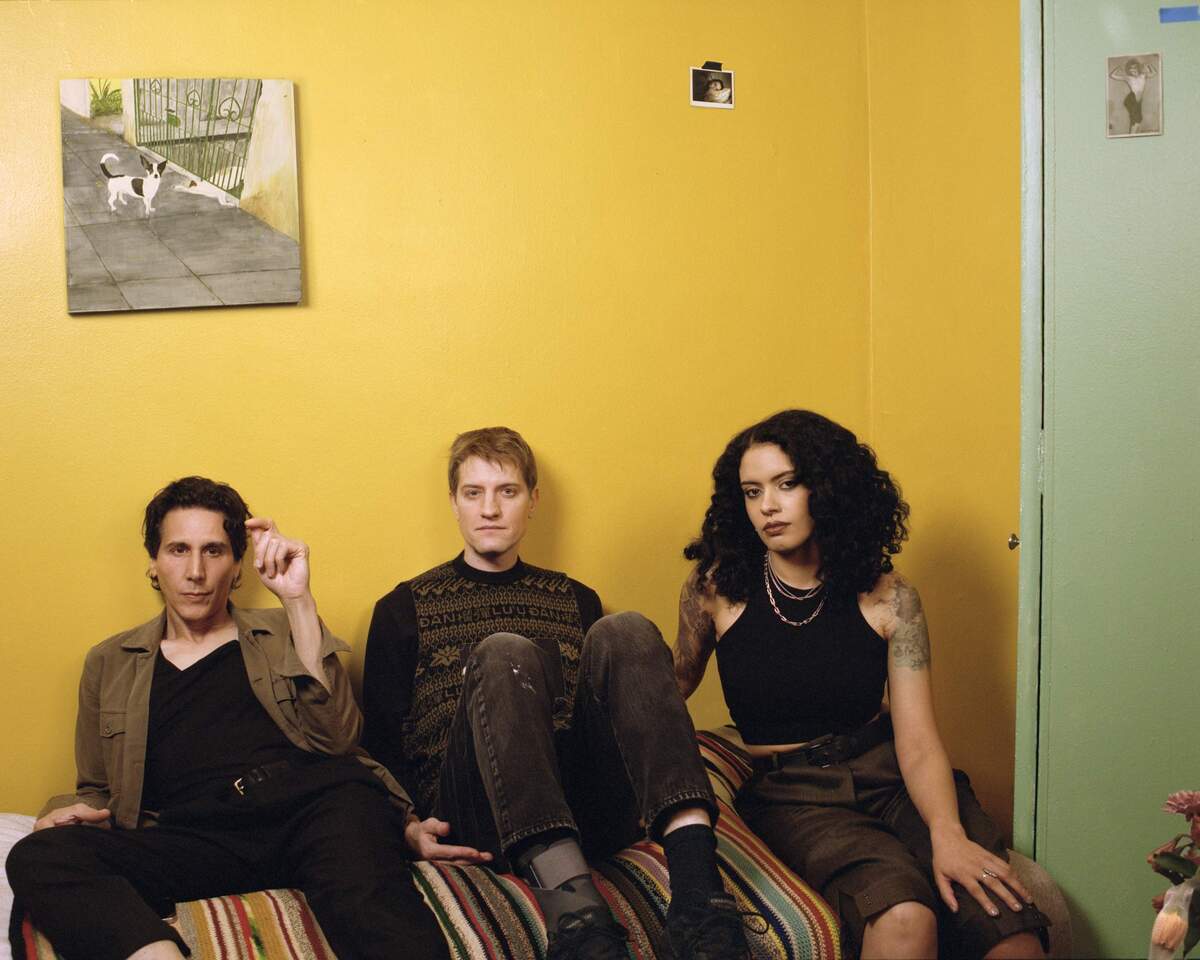
Thanks for this unknown !!